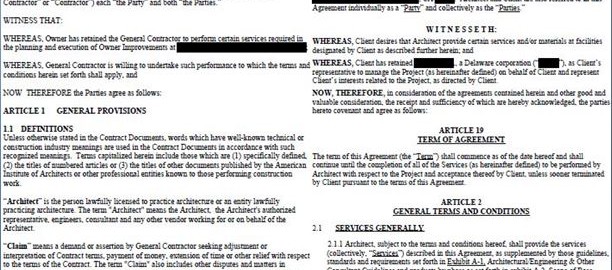Pre-planning is to a project’s success what Smokey Bear is to wildfires.
A Smokejumper is a well-trained expert who plunges into active wildfires in a remote or inaccessible area. Often times with nothing more than the gear on their back.
Smokey Bear on the other hand is a friendly iconic reminder that prevention is the best (and most cost effective) practice.
One gets the job done by communication, prevention and pre-planning. The other is a crisis manager – and a hero – which in some respects is part of the problem. But why?
The answer is that pre-planning (and crisis prevention) are consistently overlooked. However, pre-planning out-performs crisis management in every respect. Pre-planning is an absolute necessity for a project’s success. Why then, is there tension – or at least confusion – between pre-planning and crisis management?
Crisis Management
Part of the problem is that successful crisis managers are celebrated. Firefighters are heroes. But the person that clears brush around their house? Well, that’s just plain boring, right?
Thus our perspective – and the outcome – is backwards. This paradox is directly applicable to business and project management.
Shouldn’t prevention and pre-planning have an equal if not more important status than crisis management? Consider some of the barriers to preplanning:
- An environment of no accountability
- Autocratic organizational structure
- Fear
- Control
- It’s boring!
- Crisis managers are “rewarded”
Accountability Not Wanted Here
Pre-planning creates accountability. Oftentimes initial projections and assumptions lose their luster when contrasted against an empirically derived plan. Moreover, some organizations and individuals just don’t value being held accountable.
Autocratic Organization: The Emperor Has No Clothes
No one wants to be seen as disagreeing with the boss. Nobody wants to tell the emperor that their clothes are less regal and more revealing. In a shoot-the-messenger environment, accountability causes tension.
Ironically, this environment is especially inviting to Smokejumpers. Their job is secure. Nero is running the business so their services will always be in need. They’re enablers and beneficiaries of the management-by-crisis culture.
Besides, there is often no political capital in being the one to say “iceberg dead ahead”. The first person to highlight the future problem is probably perceived as being the problem.
Fear
Fear is a powerful motivator. What if predicting or pre-planning suggested embarrassment for others? Maybe the executive projections were a bit too rosy? If pre-planning exposes weaknesses, it’s not going to get a lot of airplay. Better to bury the issue for the time being and hope the Smokejumpers can mop up after the building is fully in flames.
Control
Pre-planning concedes control. Maybe releasing on control exposes what they should be doing or don’t know how to do?
Sometimes preplanning goes against the grain in a top-down, authoritative culture. A leadership level, accustomed to having their way, is going to bridle at pre-planning efforts that cut against the anonymity of autonomy. It might also expose other weakness.
Pre-Planning is Boring!
Admittedly there’s not much sex appeal with pre-planning. Nobody gets really excited about pro formas, project schedules, risk registers etc. However, benefit is inversely proportional to the “excitement”. This is where the game is won or lost.
Reverse Incentives
Any Econ 101 student will tell you that if you want more of something, you need to discount it, reward it or pay for it. The same principle applies to crisis managers.
This principal fosters an environment where the attention and behavior of fire fighting versus pre-planning is encouraged. This may also be the most dangerous aspect.
Danger Ahead!
As I mentioned above, crisis management rewards firefighting. Being “rewarded” is often perceived as adding value. The most dangerous type of project team member is the one that perceives value in putting out fires. It sabotages essential pre-planning and satisfies their need to show value.
What Should You Do?
Commit to Change
There are several compelling reason to change this paradigm. Professional, detailed pre-planning saves money, reduces risk, and makes heroes out of the team that successfully executes a pre-planned project, instead of the crisis manager.
“Every battle is won before it is ever fought.” Sun Tzu
(Pre) Plan for Success
Pre-planning is positively correlated to success. That seems intuitive, yes? But either for organizational reasons, autocratic organizational structures or otherwise, it (pre-planning) doesn’t get much traction.
Experts, of any stripe, are successful because they diligently pre-plan. The ability to “see” into the future is really an extension of pre-planning.
Focus on Initial Conditions
Pre-planning is a powerful predictive exercise. Initial conditions are the single biggest determinate of the final outcome.
If no prediction (pre-plan) is created, you can be certain that what can wrong, will go wrong; probably at the worst possible moment. This axiom is directly related to, and exacerbated by the timing (more on that below). As an example, consider the approach use by expert professionals.
Experts survive and excel from pre-planning. I’m reminded of a saying I heard a long time ago: “If you’re losing money or making money, but don’t know why, you’ve got the same problem.” Experts aren’t in business to lose money. They differentiate themselves by pre-planning. Experts avoid risk. Pre-planning allows experts to focus on what’s going to happen and thus avoid risk.
Surround Yourself with Experts
Hire and or assemble an expert project leader and project team that will professionally speak the truth. As the famous basketball coach was quoted as saying:
“Whatever you do in life, surround yourself with smart people that will argue with you.”
John Wooden
This wise advice does double duty. First get experts. Don’t assume you-know-what-you-don’t-know. Secondly, give them the freedom to alert you to icebergs.
Depend on Data
Create an environment where the facts are friendly. What that means is that the facts do not have an intrinsic value of themselves. They should be viewed as data. Not a personal attack or as exposing a weakness.
Timing is Everything
Pre-planning can only be effective if done early. Time is a powerful asset, and ironically it’s the first thing to go to waste. Seizing on the ability to address problems before they start, by pre-planning is huge. Time can’t be made up or recouped. Once lost, it’s gone.
80 to 90% of any project’s success is dictated by what happens in the first 10 to 20% of the project life-cycle. The initial stages are the most pivotal. Time wasted is the first causality of failing to pre-plan.
Summary
I’m not suggesting that we stop praising firefighters or successful crisis managers. But after all, it’s cheaper and less stressful to stop the fire in the first place. Besides, there is only so much you can do with a fire extinguisher.







